Getting Ready for Drawdown Learn, 10/19-10/21 at Omega Institute in Rhinebeck!
Breakout session on 2100: A Dystopian Utopia -- Resilience, Adaptation, and Innovation in a Warmer World to be led by Vanessa Keith
October 8, 2018
More About Project Drawdown:
With a modest budget and little fanfare, a group of 200 scientists and researchers mapped and modeled the 100 most effective ways to draw down greenhouse gas emissions. The Drawdown team did the math to calculate what humanity can achieve with tools already in use around the globe. Since the findings were published in April 2017, Drawdown: The Most Comprehensive Plan Ever Proposed to Reverse Global Warming has become a New York Times best seller, prompting hundreds of media reports, events, and new editions worldwide.
In 2018, along with partners at the PNW BOCES Center for Environmental Education, SCI21, the Northwest Earth Institute, and the Cloud Institute for Sustainability Education, the Omega Center for Sustainable Living is inviting educators, curriculum developers, parents, students, librarians, community groups, researchers, local officials, and other interested parties to learn together and chart a path forward.
“Innovation. Creativity. Ingenuity. Genius. When you set bigger goals, everything opens up.” —Paul Hawken, Project Drawdown
More About Vanessa’s Breakout Session: 2100: A Dystopian Utopia. Resilience, Adaptation, and Innovation in a Warmer World
How can we change our way of life to be more in keeping with natural systems and processes? Climate change unquestionably represents the biggest challenge we face, as well as our biggest opportunity for lasting, positive change in forging a new path forward. Serving both as an innovative and practical guide, as well as a call to action to increase efforts that reverse global warming trends, Vanessa Keith’s work to envision the cities of the future on a planet that will be more densely populated, subject to an array of environmental challenges, and significantly warmer offers a comprehensive design response to climate change’s most challenging scenarios. Although this work is speculative, its premises are supported by the latest climate research. Explore how cities can become more integrated with nature and natural processes. Discover how places that no longer may be suitable for large scale populations due to climate change could be reforested and returned to wilderness, or become outpost settlements focused on a wide variety of activities such as rainforest regeneration, recycling, industrial symbiosis, renewable energy generation and carbon capture and sequestration. This session will explore how creative and proactive urban design and “coming attractions” solutions planning could be integrated now and in the future to create living environments in the context of climate change.
Find out more about Drawdown Learn here: https://www.eomega.org/workshops/drawdown-learn
A description of the breakout sessions can be found here: https://docs.google.com/document/d/1kW_c-Z3Ic2nB78eQO3pSuccr9ABDa0Ex-_y_P95O08k/edit
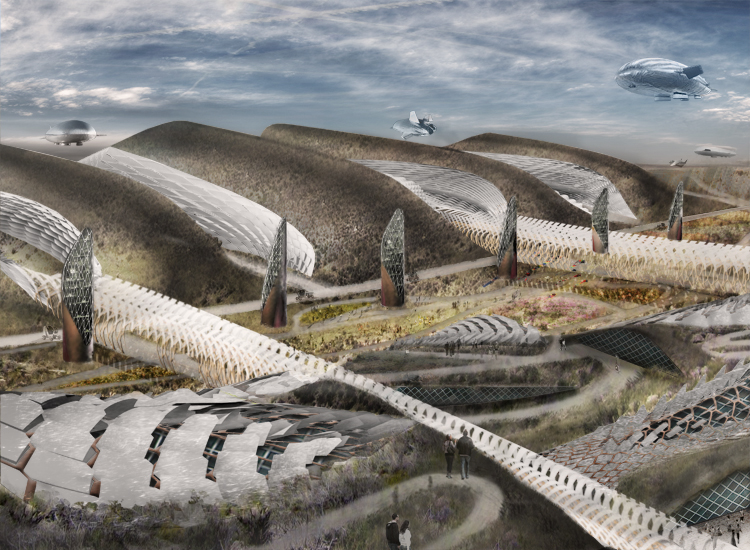
Beijing’s outpost settlement with its recycling and waste to energy facilities, remediation and vertical farming.
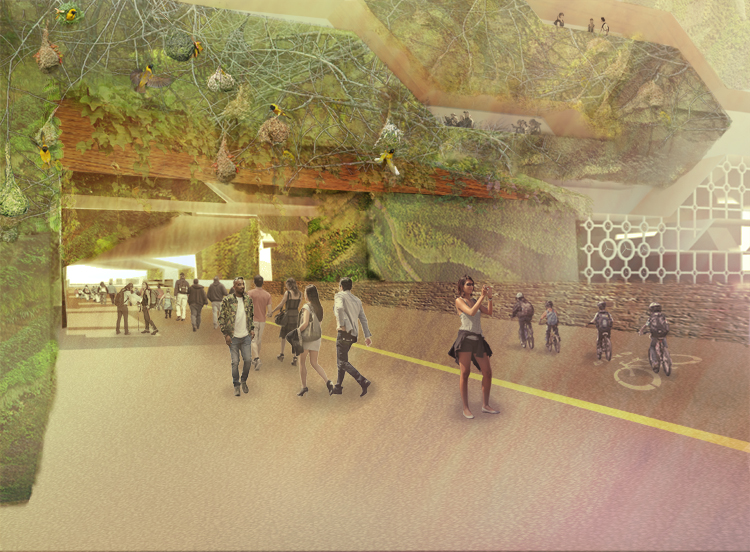
Johannesburg’s compact megacity uses the city’s facades and infrastructure as a green habitat for birds and other wildlife.
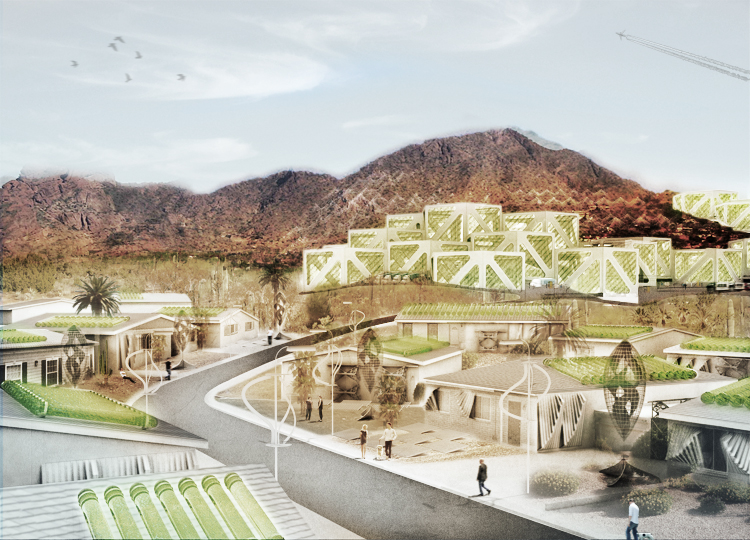
Phoenix’s outpost settlement sees the repurposing and retrofitting of existing buildings with green ‘clip-on’ architecture.
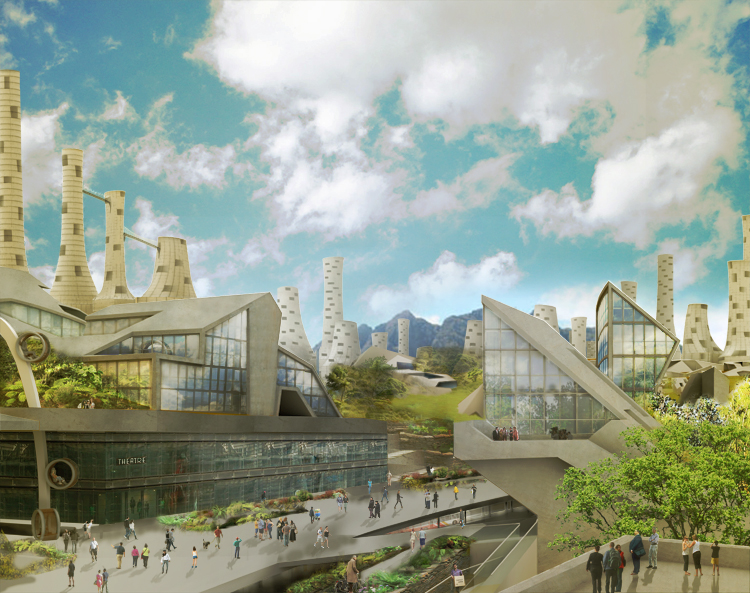
Wellington’s ‘Stacked Rambla’ becomes a vibrant pedestrian zone in a neighborhood spanning a gorge with bridges containing filaments which generate wind power.
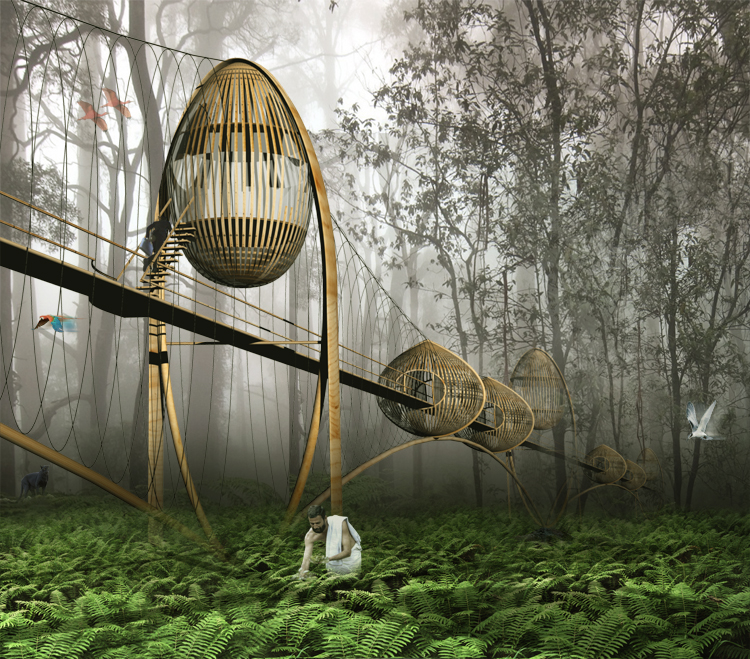
Sao Paulo’s bicycle and pedestrian centered outpost settlement is focused on rainforest regeneration and the production of medicinal and nutraceutical extracts.